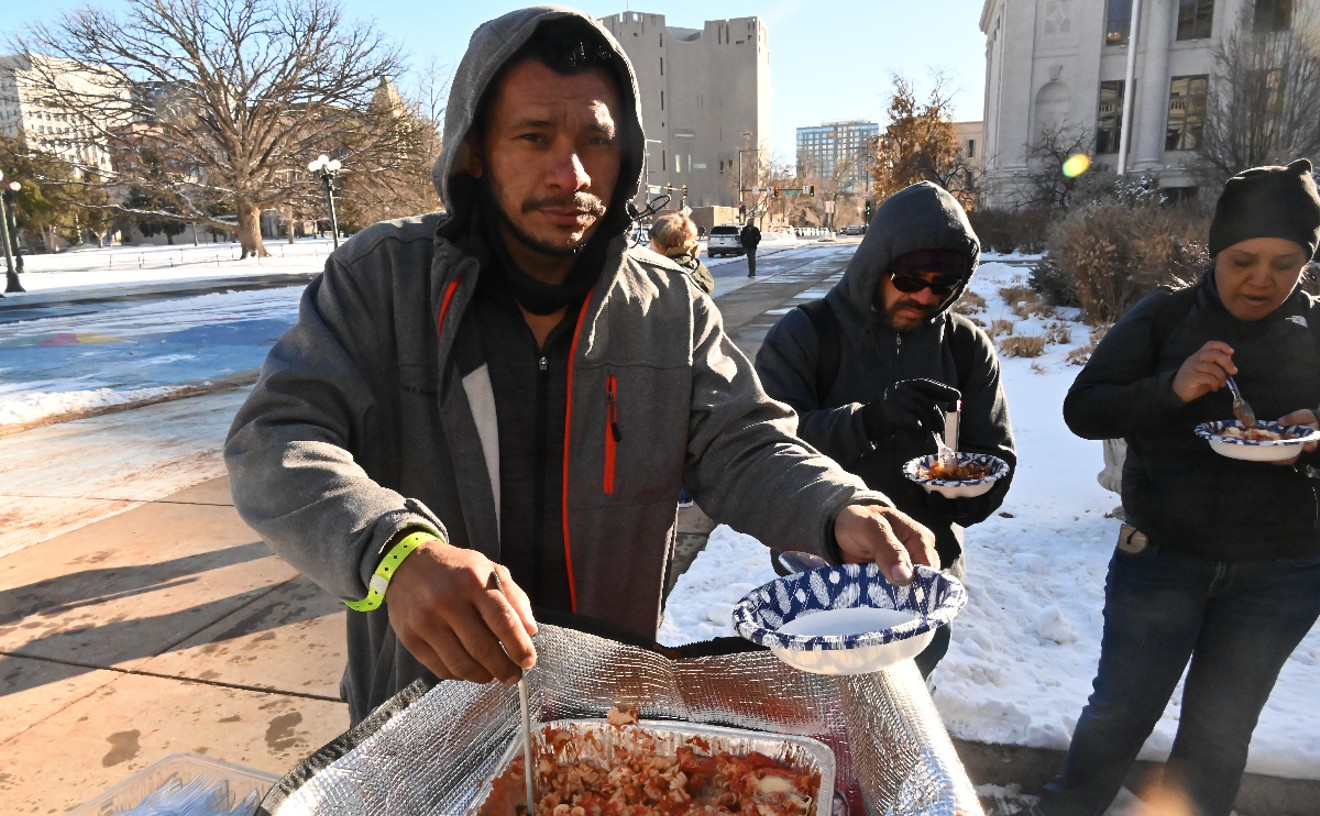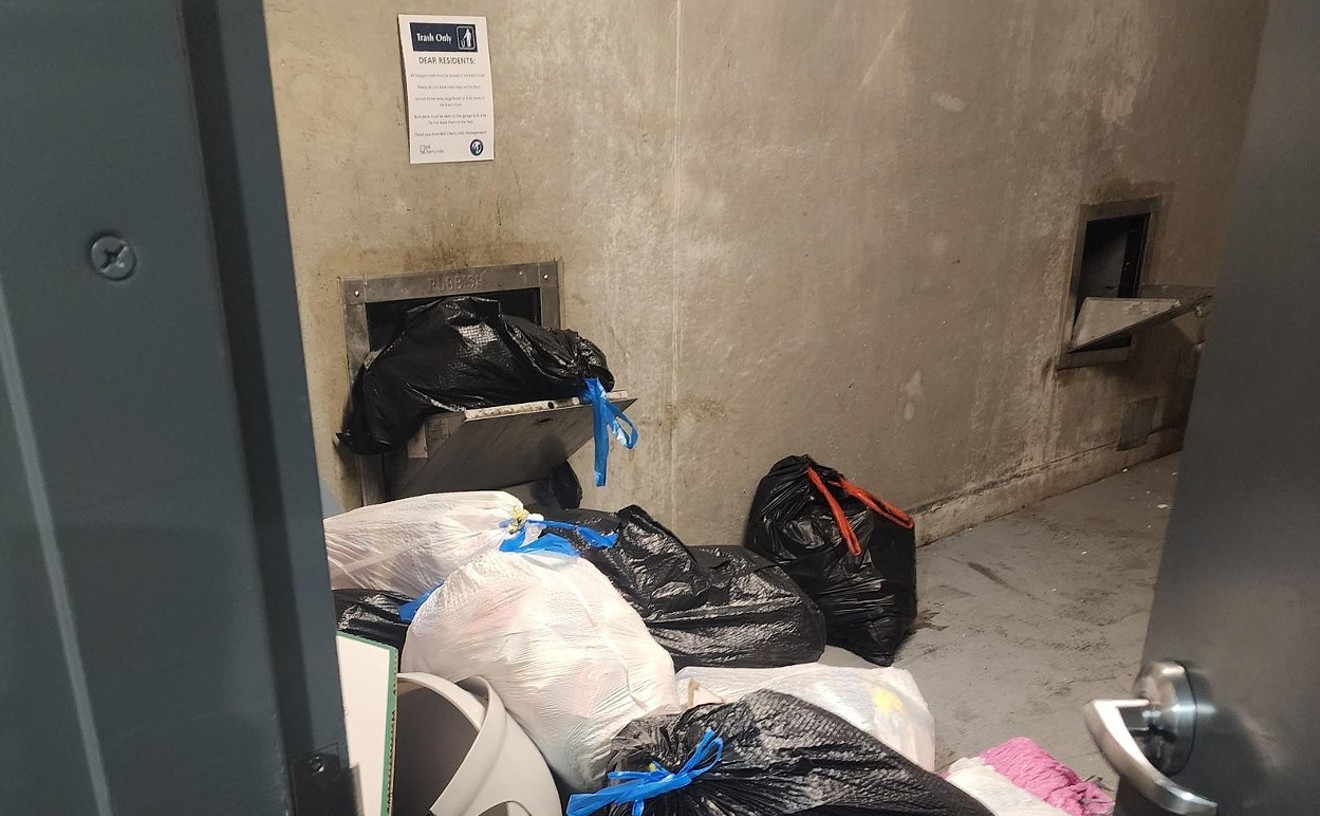But as the job is structured, the Colorado treasurer fills a critical role as the state's investment and public assets manager. One of the treasurer's most important duties is serving as a trustee on the board of the Colorado Public Employees Retirement Association, which manages the retirement funds for one in every ten Coloradans, or about 566,000 current, former and retired public employees. PERA is on the brink of insolvency as a result of $32 billion (at least) in unfunded benefits to pensioners while Wall Street investors and private equity funds have raked in billions in fees over the years, some of which aren't being disclosed to the public, as David Sirota reported in Westword last month.
Despite the challenge of cleaning up that mess, three Republicans and two Democrats want the job, and will face off in the June 26 primary. On the Democratic side is relative political newcomer and progressive candidate Bernard Douthit, who's backed by such well-known activists as Tay Anderson, Lisa Calderon and Candi CdeBaca, as well as cannabis business mogul and mayoral candidate Kayvan Khalatbari. Douthit made a bid for the RTD District A seat in central Denver in 2000 but dropped out before the primaries; he says he did so after being pressured to give way to challenger Bill Elfenbein, who won the race and served until 2008.
Douthit isn't concerned about his lack of experience in elected office; he's relying on his academic and professional record to set him apart. The Colorado native earned his undergraduate degree in economics from the University of Pennsylvania and a graduate degree in management and finance from the Massachusetts Institute of Technology (MIT). Of course, Coloradans learned the hard way that a sparkling academic résumé isn't everything; Stapleton earned graduate degrees from the London School of Economics and Harvard Business School.
Beyond the impressive academic credentials, Douthit has nearly thirty years of business finance experience. His first job out of college was writing commentary on currency risk for Greece and the Netherlands for an international foreign exchange rate publication. Over his career, he has worked on business-stress simulations for banks, served as a policy and pricing analyst and consultant for software company Oracle, and helped turn around the financial picture for a Denver health-care technology company.
"We wouldn't elect an attorney general without a law degree and a legal background, and we wouldn't elect a treasurer without a finance background," Douthit says. "All three Republicans running for treasurer have a business or finance background or both. So I believe it would be wise to have someone with that background [on the Democratic ticket]."
Douthit is also an entrepreneur: Nearly eight years ago, he opened a math-tutoring company that manages two Mathnasium locations, in Greenwood Village and Cherry Creek. He also owns his own business-finance firm, Knudson Consulting LLC.
Now Douthit wants to use that financial expertise in the treasurer's office. He's been touring the state in an effort to persuade voters in Durango, Telluride, Montrose and Buena Vista to vote for him rather than his better-known opponent, Dave Young, a state representative from Greeley who sits on the legislature's Joint Budget Committee, which crafts the state's annual multibillion-dollar budget. Young also chairs the House Appropriations Committee, which hears expenditure requests for pieces of legislation that impact the state budget. Young, who first took office in 2011 and is term-limited, may have years of experience working with other legislators on the state budget, but he doesn't have a professional finance background. He spent 23 years as a junior high math and technology teacher in Greeley.
"The treasurer's job isn't about [legislation]. I don't see a lot of companies recruiting chief financial officers out of our state legislature. They just don't. Yes, understanding policies is important, but what's of primary importance for the treasurer is to understand where and how money is invested, if it's invested well and how to expand equal access to capital for everybody," Douthit says, adding that Young, his opponent, "was a middle-school math teacher. That's admirable. ... I think it takes a lot of patience and a good heart to be a teacher, but I don't think that makes a person qualified to be the best candidate for state treasurer."
As a member of the executive branch, the state treasurer doesn't set the state budget — that is the responsibility of state lawmakers. If elected, Douthit says, he's planning three major changes in how the state treasurer's office does business. The first will be to get his hands on more than 200 contracts between the state pension board and fund-management firms that are raking in fees approaching $130 million a year, according to recent Westword stories. Douthit cited those stories on June 14, when he said he was filing a public records request to reveal the secretive contracts with Wall Street investors. If he does get his hands on those contracts (he isn't holding his breath, he says), he's hoping to evaluate PERA investment practices, restructure payouts and have the investment assets appraised.
"At a time when our legislature passed a bill asking teachers and state troopers to take a pay cut, and retirees to have their cost of living adjustments (COLAs) frozen for up to two years, I find it very concerning that PERA and members of our state legislature have not done more to keep an eye on investment expenses and ensure that assets managed are valued correctly," Douthit says, adding that he wants the state to pay the lowest fees possible to contracted asset managers and investors.

Shutterstock.com/Pro_Stock
The last item on Douthit's list is lobbying the legislature for a state-owned bank, similar to the Bank of North Dakota, which is the only one of its kind in the country. He says having a public bank would allow the state to make loans — like any other bank — to fund small businesses, support local infrastructure projects and invest in students' educational pursuits for the benefit of all Coloradans.
"Obviously, the bank needs to make money, but in a private bank that's all it's supposed to do. It's basically agnostic to what's good or bad for society. It's optimized to make money and nothing else. A public bank is optimized to, of course, make a little bit of money but to look much more broadly as to what investment we want to make for the common good," Douthit explains. " I think it could be transformative."
A public bank could also be the solution to the state's marijuana banking crisis, Douthit says. Nearly all cannabis businesses are locked out of the banking system because the feds consider marijuana an illegal controlled substance, and even local banks to not want to risk their federal status.
A separate state marijuana bank, albeit not federally insured, could be the answer that cannabis business owners have been searching for.














